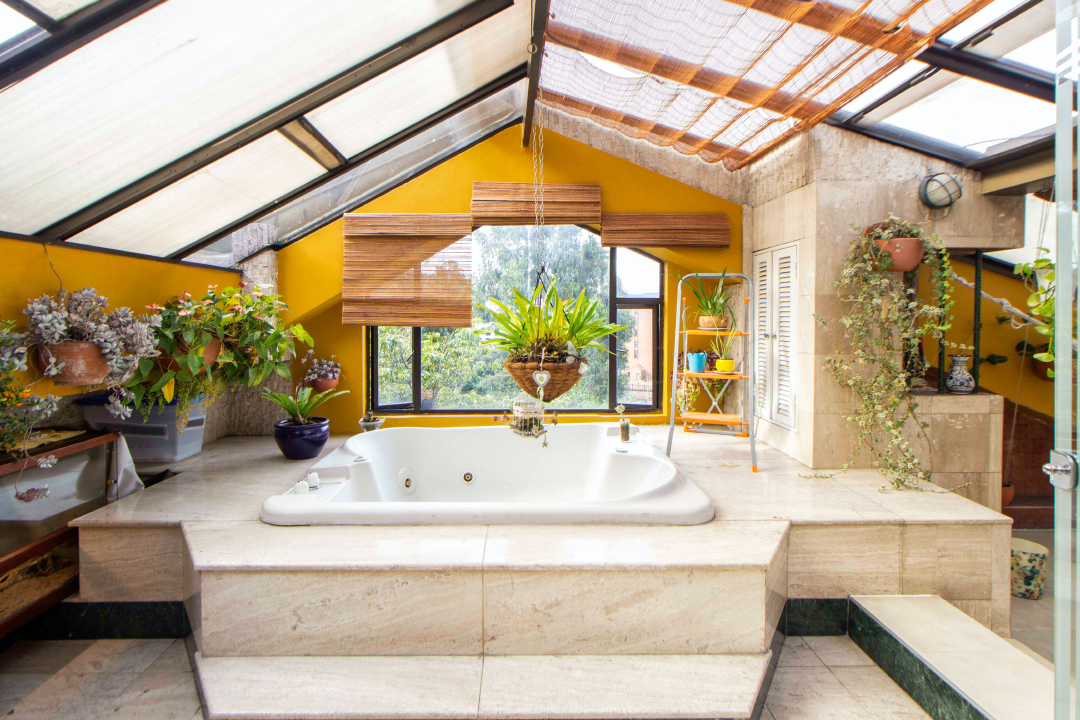
Travel trends for 2025: how to prepare a property for the demands of modern travelers?
The tourism industry is dynamically evolving, adapting to changing needs, market conditions, and the growing expectations of travelers. As we approach the final season of 2024 and welcome 2025, these changes will become even more noticeable. Short-term rental property owners are now faced with the important task of meeting new challenges. How can they prepare? What should they already be aware of?
Here is an overview of the latest trends in tourism and practical tips on how to tailor your offer to meet the demands of today’s travelers.
Tourism Trends for 2025: Ecotourism, or Traveling with Sustainability in Mind
Eco-friendly travel is becoming the new standard, driven by the increasing number of ecotourists. As awareness of the planet’s changes and the impact of human activities on ecosystems grows, the tourism industry must also account for the needs of this group of travelers.
We’ve heard property owners express concerns that “ecology is expensive.” We understand where this belief comes from, but it reflects a short-term view of sustainability in the tourism business. Why? Implementing energy-efficient heating systems, such as heat pumps, and installing solar panels for electricity generation are common steps toward sustainability. While these are initially costly, they are one-time expenses that will pay off not only through savings on energy bills but also through appreciation from ecotourists. Less expensive measures include installing rainwater collection systems or using modern, efficient sanitary devices. These not only reduce costs but also enhance the property’s appeal to environmentally conscious travelers.
Sustainability is one of the strongest trends and will have a huge impact on tourism in 2025. Travelers are increasingly seeking destinations that offer both comfort and environmental friendliness. Property owners must adopt eco-friendly solutions to meet these expectations.
Reducing the carbon footprint is another priority for ecotourists. They strongly prefer places that promote sustainable practices. Beyond basic initiatives, offering guests bicycles, electric scooters, and proximity to public transportation can significantly influence their choice of accommodation.
Additionally, offering CO2 offset programs, such as tree planting or supporting local ecological initiatives, can further attract eco-conscious travelers.
Tourism Trends for 2025: Optimal Comfort and Safety through Technological Solutions
Modern technology plays a crucial role in the short-term rental sector. Travelers want their chosen accommodations to be equipped with modern conveniences. Smart homes, which allow remote control of lighting, temperature, and even locks, are becoming increasingly popular and sought after by guests. One feature that stands out in these smart homes is the automation of the check-in and check-out process. Smart locks, which provide access via a code or app, eliminate the need for a physical meeting with the host, which is especially appreciated by younger travelers and helpful for late-night check-ins.
Although internet access is already a basic offering in short-term rentals, it’s important to understand that free Wi-Fi alone is no longer enough. Remote work has become a standard for many people, and travelers increasingly combine vacations with work. Therefore, fast and reliable internet is an absolute must in any short-term rental property. Consider creating a dedicated workspace that is comfortable and well-lit – it will surely appeal to traveling professionals.
Tourism Trends for 2025: Authenticity and Experiencing Local Lifestyles
Oversaturation with large hotels featuring pools and masses of sunbeds (often reserved at dawn) is becoming noticeable in the tourism industry. This is good news for owners of smaller short-term rental properties. In 2025, travelers will increasingly seek authentic experiences that make them feel like locals. Local food, events, interior design, and more. Property owners can respond to this trend by tailoring their offers to provide unique experiences that differentiate them from the competition. What steps should they take? Consider collaborating with local artists, craftsmen, or guides to offer original workshops or tours showcasing the region’s culture and traditions. This requires more effort from the business owner, but it can become a key selling point for vacation rentals.

Offers that promote relaxation, rest, and a touch of luxury can also be considered authentic and representative of local beauty. A cabin in the mountains, a spherical tent by a Mazurian lake – after the pandemic, guests increasingly appreciate spaces that promote relaxation and rejuvenation. In 2025, properties offering amenities such as private spas, saunas, pools, and spaces dedicated to meditation or yoga will be particularly popular.
Who doesn’t try local delicacies while traveling? This is surely the authenticity we seek in the region we’re visiting. Guests are increasingly health-conscious and prefer properties that provide access to healthy food. Consider partnering with local food suppliers to provide fresh, organic products directly to the property. The ability to order ready-made meal kits with local ingredients or even organize culinary workshops with a local chef are additional options that can attract guests.
A well-equipped kitchen in the property will allow guests to prepare healthy meals. Additionally, providing recipes for local dishes and information about the best restaurants and markets in the area can enrich their culinary experience.
Tourism Trends for 2025: Interior Design Still Matters
Travelers are increasingly expecting their experiences to be world-class, but also infused with local touches. They prioritize space, both living space and sufficient distance from other homes. It’s important to offer international standards, such as high-speed internet, quality linens, and modern amenities, while also highlighting local traditions and culture. Consider how you can combine these elements to create a unique experience for your guests. Local decorations, handmade items, or regional delicacies can emphasize the authenticity of the place while meeting travelers’ high expectations.
2025 will bring new challenges and opportunities for the short-term rental industry. Understanding and adapting to the latest tourism trends, such as sustainability, technology, authentic experiences, health and well-being, flexibility, and the changing expectations of travelers, will allow property owners to stand out in the market and attract modern travelers.
The key to success will not only be adapting the offer to meet the growing demands of guests but also skillfully leveraging new technologies and innovative solutions that allow for efficient property management and the building of long-term relationships with clients. This will help property owners secure more bookings, higher profits, and the loyalty of guests who will be eager to return and recommend their offers to others.
Frequently Asked Questions About Tourism Trends in 2025:
1. What are the benefits of offering local experiences in short-term rentals?
Offering local experiences in short-term rentals helps differentiate the property from competitors and attracts guests seeking authenticity. Experiences like workshops with local artists or guided tours enrich the stay and provide deeper insights into the region’s culture, which can enhance guest satisfaction and loyalty.
2. What are the key trends in tourism for 2025?
The key trends in tourism for 2025 include sustainability, the increasing role of technology such as smart homes and automation, and a growing interest in authentic local experiences. Travelers are placing more value on environmental responsibility, health and well-being, as well as flexible booking options.
3. How to prepare a short-term rental property in line with 2025 trends?
To prepare a short-term rental property in line with 2025 trends, it is recommended to invest in eco-friendly solutions, such as energy-efficient systems and solar panels, as well as providing modern technological amenities like fast internet, smart locks, and automation systems. It’s also beneficial to offer authentic local experiences and spaces designed for relaxation.
4. Why are ecology and sustainability important in tourism in 2025?
Travelers are increasingly choosing destinations that minimize their environmental impact. Eco-friendly practices, such as energy conservation, carbon footprint reduction, and supporting local communities, can attract more eco-conscious tourists and enhance the competitiveness of rental offers.
5. How does technology impact the short-term rental industry?
Technology has a major impact on the short-term rental industry by introducing solutions that simplify property management and improve guest experiences. Smart homes, automated check-in and check-out processes, fast internet, and virtual tours are just some of the technologies becoming standard in modern rental properties.
6. What amenities are most desired by modern travelers?
Modern travelers look for amenities such as fast internet, smart homes, comfortable spaces for remote work, and eco-friendly solutions. Relaxation spaces like private spas are also highly valued. Access to sports equipment, such as bicycles, SUP boards, or kayaks, is appreciated. Personalized services and the chance to experience local culture significantly enhance the appeal of a rental property.
7. How does service personalization affect guest satisfaction in short-term rentals?
Personalization plays a key role in enhancing guest satisfaction in short-term rentals. By tailoring offerings to individual needs, such as dietary preferences or special amenities, guests feel more valued and are more likely to return. Personalization also increases the likelihood of positive reviews, which directly impacts the property’s reputation.
In 2024, the European Union introduced new regulations concerning the short-term rental market. These regulations bring new responsibilities for property owners and platforms that mediate rentals. The article will discuss the key aspects of this new law and what it means for people renting out their properties.


